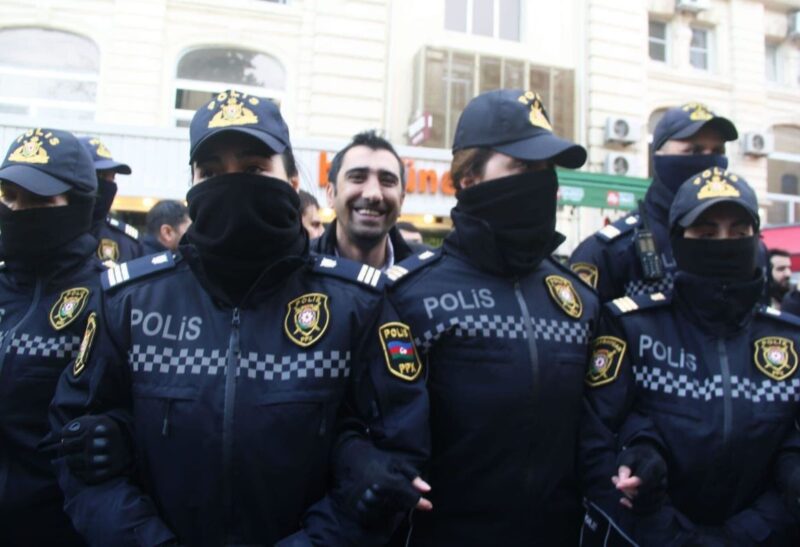US Officials Call for International Presence in Karabakh
On September 25th, a meeting between representatives of the Armenian residents of Karabakh concluded in Khojaly, with the Azerbaijani Presidential Administration releasing details of the discussion. Ramin Mammadov, responsible for contacts with Armenian civil society and social activists, announced the possibility of organizing visits to Baku for individuals of Armenian descent.
During the meeting, elderly Armenian residents in isolated areas were provided with initial medical assistance and placed under medical supervision. Plans were proposed to facilitate meetings between the International Committee of the Red Cross and these individuals or arrange their transfer to family members or medical institutions. Additionally, discussions centered on the establishment of joint health services, involving medical personnel from both Azerbaijani and Armenian backgrounds. These services would be available in a field hospital near Khankendi or Khojaly, focusing on individuals with chronic illnesses or in need of specialized surgery. Mobile medical teams, comprised of Azerbaijani and Armenian medical professionals, would also extend healthcare to isolated villages.
The Presidential Administration stated their intention to hold another meeting soon to assess progress and determine the next steps. Notably, a representative from Russian peacekeepers participated in this meeting. This gathering followed the initial meeting with Armenian representatives in Yevlakh on September 21.
US Officials Express Concern and Call for International Presence
On September 25, the White House released a statement addressing recent events in Karabakh and the evacuation of Armenians. Karin Jean-Pierre, the press secretary of President Joe Biden, expressed concern and announced that the National Security Council was closely monitoring the situation. She also highlighted a high-level US delegation’s visit to Yerevan, emphasizing Washington’s support for Armenia’s sovereignty, independence, and territorial integrity, as well as its commitment to humanitarian efforts in the wake of recent violence.
The United States called for an international mission to oversee the fulfillment of Azerbaijan’s promises regarding the safety and rights of Karabakh Armenians. The aim is to maintain the ceasefire, resolve humanitarian issues, and work towards lasting peace between Armenia and Azerbaijan. The US emphasized the need for Karabakh Armenians to have the option to remain in their homes safely and securely. Azerbaijan was urged to ensure the protection of civilians and humane treatment, even for those with suspected involvement in the war.
Samantha Power, head of the United States Agency for International Development (USAID), who visited Yerevan, underscored the importance of international participation to assess Azerbaijan’s compliance with its commitments. She also mentioned the potential involvement of USAID in such efforts.
In response to the United States’ suggestion of sending a mission to Karabakh, Dmitry Peskov, press secretary of the Russian President, emphasized the necessity of Azerbaijan’s consent for any observation mission in the region. He stated that specific details about the proposed mission were yet to be provided. Russia maintained diplomatic relations with both Yerevan and Baku, affirming continued dialogue with ethnic Armenians in both cities and in Karabakh.
Amnesty and Ongoing Developments
US Secretary of State Anthony Blinken engaged in discussions with President Ilham Aliyev, urging the announcement of a broad amnesty based on peace and mutual respect for all Karabakh residents. However, there was no official statement regarding amnesty in the information released by “president.az.”
Hikmet Hajiyev, assistant to the President of Azerbaijan for foreign policy, had previously mentioned plans for amnesty for Armenian individuals who had laid down their arms in Karabakh. He expressed a desire for the peaceful reintegration of Karabakh Armenians into Azerbaijan, excluding those who had committed crimes during the First Karabakh War.
However, opposition voices, like Erkin Gadirli, argued that amnesty should not apply to war criminals, emphasizing that separatism itself constituted a crime.
These discussions unfolded as Acting Assistant Secretary of State Yuri Kim and USAID head Samantha Power visited the region to assess the aftermath of the military operations and their implications. Their visit aimed to evaluate the situation on the ground and consider the need for international presence and aid.
Both officials were expected to arrive in Baku for further discussions, underscoring the ongoing complexities surrounding Karabakh and the potential for international involvement in the region.



